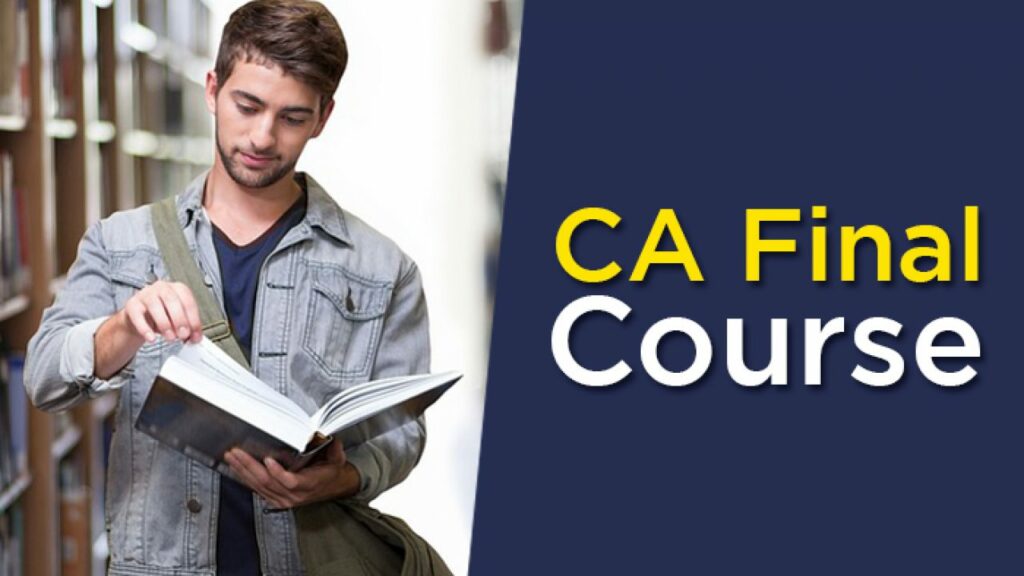Chartered Accountant Course
Chartered Accountant Course The Chartered Accountant Course is considered one of the best paying career professionals in the Republic of India. Chartered accounting may be a sensible career choice if you’re curious about subjects like taxation and accounting. The career path to becoming a Chartered Accountant (CA) is difficult but is promising. The complete chartered accounting course length of five years. Thus, if you’re willing to must up a career as an accountant, you must be ready to devote that abundant time to your education. There is an honest demand for chartered accounting professionals in the Republic of India inside non-public likewise as public organizations. A certified CA is employed to alter the account details of an organization. They additionally ease in finding disputes and preventing bankruptcy. If you’re attending to pursue this career then it’s an improved plan to begin when category ten. Decide the chartered Accountant course details below: Chartered Accountant Course Details and CA Exams: CPT (Common Proficiency Test) IPCC (Integrated skilled competency Course) FC (Final course) Click here to check IPCC Result Chartered Accountant Course Eligibility: Candidates are eligible for accountant CPT registration when category ten, but they’ll be able to seem for it after passing class 12. Students of commerce, science likewise as the arts stream will apply for CPT. Students of Commerce stream have to be compelled to secure five hundredth mixture marks in school twelve exams so on be eligible for CPT. Students of all alternative streams have to be compelled to score a mixture of 55 excluding arithmetic and him together with arithmetic in school twelve board exams. On clearing the CPT communicates with success, candidates become the member of Republic of Indian chartered Accountants courses or Institute (ICAI) – the communicating and course conducting body for all CA in India. How to become a CA (Chartered Accountant): Demand for Accounting Technician Course (ATC): After clearing the accountant CPT, candidates ought to register for the ATC. A similar will be done when clearing 10+2. Candidates who have already cleared test or skilled education (Examination-I) or Foundation Examination are going to be eligible to register for ATC. Candidates WHO had at one time registered for Intermediate/ Intermediate (Professional Competence) program/ skilled Education (Course-II) will register for ATC. Apply for CA IPCC: Candidates should have scored a small of one hundred out of two hundred marks in CPT when category twelve so on used for IPCC program. Registration for IPCC should be done 9 months before the primary day of the month during which the communicating is going to be conducted. The courses comprise seven subjects, every value one hundred marks. So on clear the course, you may score a least of forty marks in every subject & a mixture of fifty or higher than. Scoring sixty marks and higher than in any subject can exempt you from reappearing for that exact subject in case you fail the course and arrange to provide the exams once more. Articles in CA After clearing the IPCC, you may do an berth of three years below an authorized CA. The Articleship is a chance to find out, but accounting is handled below Chartered Accountant. CA Final Course: During the last six months of your 3-year article ship, you’ll seem for the ultimate course exams. Once you have got cleared the ultimate course, you may be awarded the designation of an accountant. CPT Result Click here to check CPT result Chartered Accountant Course Payment and CA Job Prospects: Chartered Accountant course (CA) is in nice demand inside auditing companies, banks, finance firms, stock broking companies, legal companies, etc. payment choices don’t seem to be bright throughout articles yet will candidates can expect an honest salary when finishing the course. The average beginning payment of a CA varies from Rs. Four to six large integers every year when finishing the ultimate course. The payment depends on the town and the company you get used to. CA exams are powerful and also the course long, so, it’s judicious to pursue graduation in conjunction with the program. When category twelve you’ll apply for B. Com program in conjunction with CA courses. Pursuing B. Com can provide you with another choice in case you would like to opt off the CA field. Another advantage is that you will apply for jobs on the premise of your B. Com degree. Click here to check CA Final Syllabus



